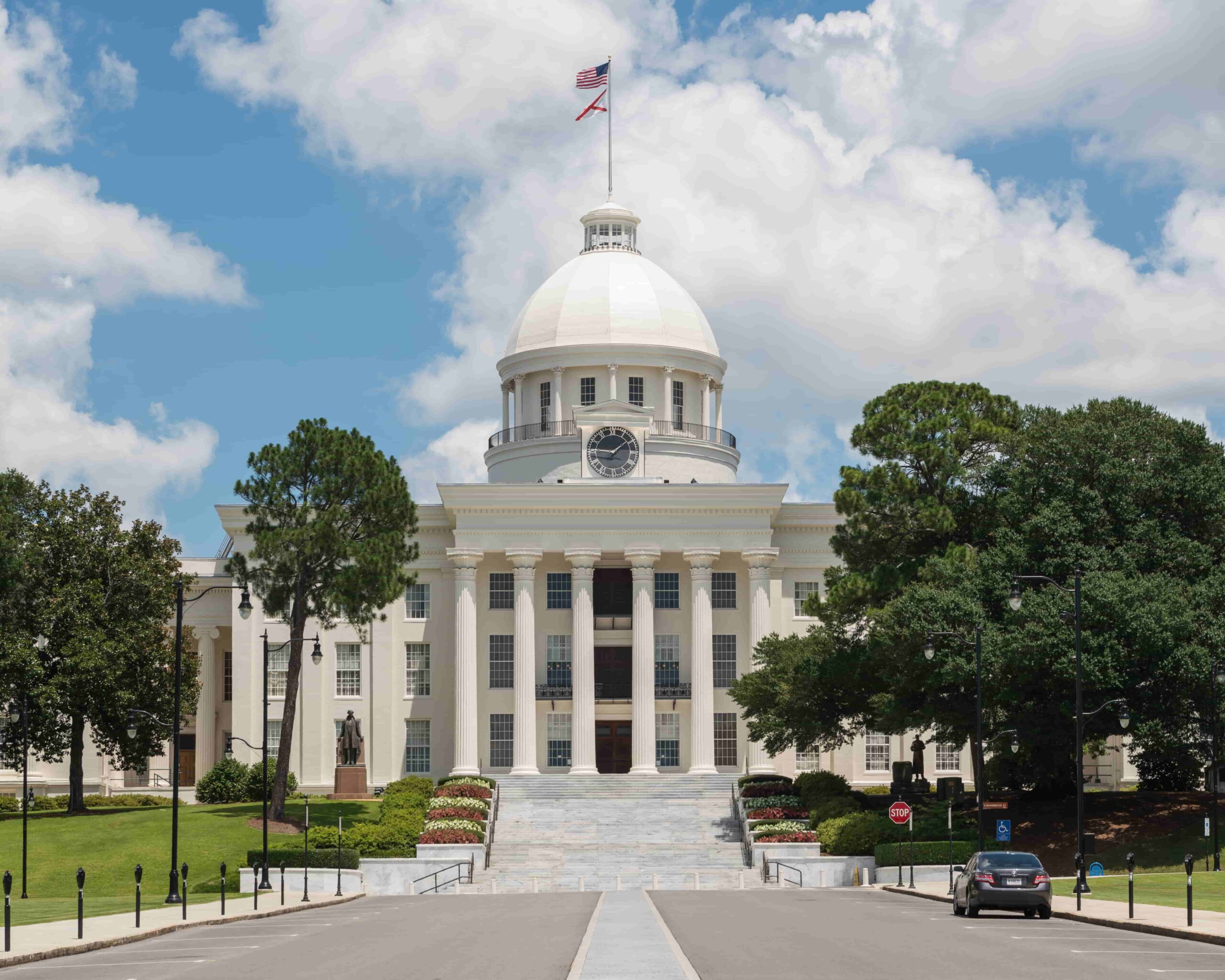Alabama became the first state in U.S. history to pass a bill criminalizing gender-affirming health care following a vote on April 7.
The Alabama House of Representatives voted 66-28 in favour of Senate Bill 184, which would ban doctors or other medical providers who offer treatments like hormone replacement therapy (HRT) and puberty blockers to trans minors under the age of 19. Should the bill be signed into law, providing gender-affirming care would be a class C felony, punishable by a sentence of 10 years in prison and a $15,000 fine.
Sponsors of the legislation said SB 184 is necessary to prevent young people from undergoing treatments they claim are irreversible and life-changing. State Sen. Shay Shelnutt, who has pushed versions of the proposal for three consecutive years, alleged that medications to affirm a trans young person’s sense of self are “child abuse.”
“We don’t want parents to be abusing their children,” the Republican lawmaker said during a February debate over the bill. “We don’t want to make that an option, because that’s what it is. It’s child abuse. This is just to protect children.”
After passing the Alabama Senate in April by a 24-6 vote, Gov. Kay Ivey signed the bill into law on April 8. Critics noted that the law would also force schools to out trans students. The text of SB 184 forbids teachers and other faculty members from withholding information regarding a “minor’s perception that his or her gender or sex is inconsistent with his or her sex” from their parents.
“Moving forward with this bill will be deadly for trans youth.”
Just three other U.S. states have passed legislation limiting the types of gender-affirming care that can be offered to trans youth: Arizona, Arkansas and Tennessee. Arizona’s legislation, which was signed into law by Gov. Doug Ducey last month, applies solely to surgical interventions, while Tennessee’s version is extremely limited in scope. It forbids puberty blockers from being offered to “pre-pubertal minors,” an age group for which that treatment is not recommended.
The Arkansas bill applies to both surgery and life-saving medications for trans youth. After state lawmakers forced the legislation through over the veto of its governor, Asa Hutchinson, the law was temporarily blocked by a federal judge as civil rights groups challenge it in court.
LGBTQ2S+ advocates denounced Alabama legislators following the April 7 vote. Lambda Legal referred to SB 184 as “cruel, dangerous and unconstitutional” and threatened to sue.
“The Alabama Legislature and Governor Kay Ivey need to consider the time and resources they will invest, not to mention the stain of discrimination that often means lost opportunity and investment, and ask themselves if targeting the health care of children is truly worth it because we are prepared to make that investment in order to protect transgender youth, their families and their doctors in Alabama,” said Sruti Swaminathan, staff attorney for Lambda Legal, in a statement.
The American Civil Liberties Union (ACLU) also confirmed that it was prepared to file a lawsuit against SB 184. Chase Strangio, deputy director for Trans Justice with the ACLU’s LGBTQ & HIV Project, called it the most “deadly, sweeping and hostile law targeting transgender people in the country.”
“The way to reduce harm to trans youth is to provide them with gender-affirming health care where it is medically indicated,” he said in a press release. “This bill takes that lifesaving treatment option off the table and makes it a felony. Moving forward with this bill will be deadly for trans youth, push doctors out of a state that has a shortage of medical providers, hurt Alabama’s economy and subject the state to costly litigation.”
But the passage of SB 184 in the Alabama Legislature wasn’t the only anti-LGBTQ2S+ move by the state’s lawmakers this month. The Senate also voted 26-5 in favor of HB 322, which prevents trans students in K-12 schools from using the locker room or restroom that aligns with their lived gender on campus.
Proponents claimed the legislation wasn’t intended to be discriminatory but was intended to address a “safety issue.”
“Almost every school district in this state is dealing with this issue with opposite genders wanting to use opposite bathrooms,” said the bill’s sponsor, state Rep. Scott Stadthagen, in comments cited by ABC News. “It is for protection of our students.”
But despite these assertions, HB 322 was amended at the last minute to tack on language strongly resembling Florida’s controversial “Don’t Say Gay” bill. The amendment introduced prior to Thursday’s hearing would “prohibit classroom instruction or discussion on sexual orientation or gender identity.” But the bill goes farther than Florida by applying to K-5 grades. The Florida legislation, in contrast, bans discussion on LGBTQ2S+ subjects up to the fourth grade.
Because the bill was amended from its previous version, HB 322 will be sent back to the Alabama House to approve the changes. The legislation stands a strong chance at passage in a chamber where the GOP controls 73 percent of seats.
HB 322 is also primed for a legal challenge were it to be enacted into law. In a statement, the Human Rights Campaign (HRC) referred to the bill as an attempt to “exploit divisive political issues for political gain amongst their radical base at the expense of kids who are simply trying to navigate their adolescence.”
“These bills discriminate against and deny transgender students the fundamental human dignity of being able to use the bathroom without being targeted or humiliated,” said Carmarion D. Anderson-Harvey, HRC’s Alabama state director. “Transgender youth have a right to an education, and not being able to use the bathroom safely at school abridges that right.”
Update: April 8, 2022 4:19 pmGov. Kay Ivey signed SB 184 into law on April 8; this story has been updated to reflect that.


 Why you can trust Xtra
Why you can trust Xtra


